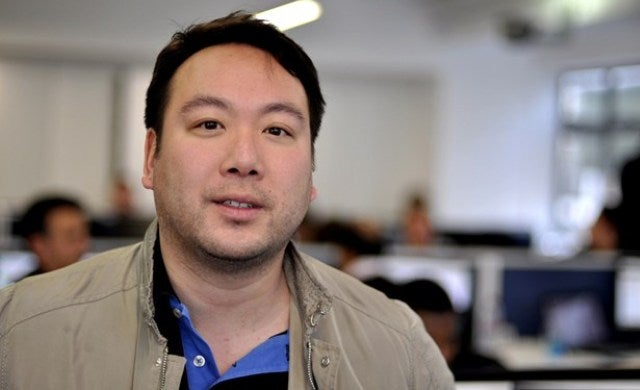
William Shu is an American businessman also known as the co-founder and CEO of Deliveroo, a British online food delivery company where customers can order high-quality takeaway online from top restaurants, fast delivery straight to customers’ home or office.
Early life and education
William “Will” Shu was born in December 1979, to Taiwanese parents in Connecticut. Shu obtained a Bachelor’s Degree from Northwestern University in 2001, and an MBA from the University of Pennsylvania – The Wharton School in 2012.
Career
William Shu’s first job was as an investment banking analyst in 2001, as his first job at Morgan Stanley in New York City until 2006. In 2006, Shu became an associate in D.B. Zwirn & Co., until 2007. Shu also worked as Vice President in ESO Capital until 2010. In 2011, Shu worked at SAC Capital as a summer analyst. Shu was responsible for long/short equities in the retail/consumer sector.
Deliveroo
In 2013, William Shu founded Deliveroo, a British online food delivery company, with his childhood friend, and software engineer, Greg Orlowski, both are Americans. The idea of Deliveroo began when Shu was still working in Morgan Stanley’s London office and saw the lack of delivery options while working late nights. Shu worked as Deliveroo’s first delivery person, delivering food every day for the first eight months to understand the customer experience.
Deliveroo earns money by charging restaurants a commission fee, as well as by charging the customer a fee per order. The company operates in two hundred cities in the UK; and in Australia, Belgium, France, Germany, Hong Kong, Ireland, Netherlands, Singapore, Spain, and the United Arab Emirates. Customers place their orders through its website or app and then self-employed motorcycle or bicycle couriers transport orders from restaurants to customers.
In November 2017, the company launched Deliveroo Plus, a subscription service which gives UK customers unlimited free delivery. The company operates with some of the largest chain-restaurants across the UK, with the majority being accessible exclusively on the Deliveroo app along with thousands of independent restaurants. It became recognized that the brewing company, Heineken International had settled a deal with Deliveroo on November 16, 2016, to deliver the latter’s ciders and beers, initially across 15 sites in London, Bath, and Cardiff. This delivery settlement, whose projects began that same week, was viewed the biggest one of its classification (that is, with concerns to the brewing industry). By the end of 2017, they further thought for further expansion of these activities across the UK.
Deliveroo declared plans in January 2017, to produce 300 UK tech jobs when it starts its new head office in London, later in 2017. The British-born company contracted more than 1,000 full-time staff in January 2017. The Deliveroo’s Editions kitchens originated in April 2017. Sometimes known as ghost restaurants, these deliver-only kitchens, let restaurants to obtain customers in locations without requiring High Street premises, thereby decreasing set-up costs compared to a full-service restaurant. Deliveroo applies its data to predict which restaurants are likely to succeed and recognizes areas where the customer demand for particular cuisines is high.
In mid-June 2016, Shu and Orlowski won an award for the Best Startup Founders award as part of The Europas Startup Conference and Awards. Deliveroo also won the Fastest Rising Startup of the Year and the Europas Grand Prix award.
Deliveroo reported a loss of £1.4 million in 2015. In mid-November 2016, Deliveroo reported another loss of £18.1 million for that year. In September 2017, the company reported a growth of 611% in global revenue in 2016, with sales of £128.6 million, while losses rose from £30.1 million to £129.1 million.
Deliveroo produces marketing as well as the delivery service and order taking, enabling it to provide food from restaurants that do not usually extend a delivery service. In May 2016 press announcement, the German Bar Association notified the public that delivery companies such as Deliveroo, Foodora or Take Eat Easy are legally accountable, not the restaurants themselves for problems about the quality of the food.
Funding
Deliveroo raised a £2.75 million series A investment round in June 2014, from Hoxton Ventures and Index Ventures, as well as an assortment of angel investors. The Roofoods Ltd, doing business as Deliveroo, received $25 million in series B funding in January 2015, largely from Index Ventures, Hoxton Ventures and Hummingbird Ventures at an estimated valuation of $100 million. At this time, the company was providing deliveries for around 750 restaurants.
In July 2015, Deliveroo achieved an additional $70 million in series C investment from Index Ventures and Greenoaks Capital marking Deliveroo’s third funding around a year. In November 2015, the company increased $100 million in series D funding, and $275 million in a series E funding in August 2016, from the hedge fund Bridgepoint. Deliveroo announced a $385 million series F round in September 2017 and an additional $98 million in November, bringing the total round to $480 million.
For the first two years, Deliveroo operated in London, growing via word of mouth. Deliveroo expanded internationally to Berlin, Dublin, and Paris in 2015. The company reached an estimation of more than £1.5 billion, operating in more than 150 cities and 12 countries in November 2017. Orlowski, who had been the Deliveroo’s chief technology officer, left in February 2016 to spend more time with his wife in Chicago after the birth of their daughter. Mike Hudack, a former Facebook director of product management, joins Deliveroo in September 2016, as its new chief technology officer.
William Shu famously continues to work shifts as a Deliveroo driver, delivering food around London every few weeks.